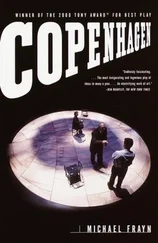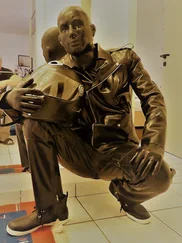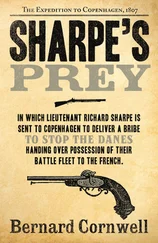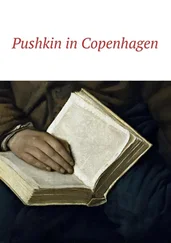Sleipner walks to the address where the broad claims that Rattlesnake lives. The building is in a rear courtyard. It is four stories high. Rattlesnake’s name is on the intercom’s resident list, fourth floor. Sleipner refrains from pressing the button, because he will get nothing out of announcing his arrival. He lays a heavy hand on the front door’s handle, and it opens practically by itself. Then he takes the stairs up to the fourth floor, he stops and listens. He hears nothing from inside the apartment and considers walking in without talking to anyone. But he doesn’t like that idea, and more than anything he feels relieved when he suddenly hears there is someone at home after all. He recognizes the voices of both Pistol and Rattlesnake. And goes quietly back down the stairs.
He takes a close look at the building’s façade. It is a strange façade, because it is every bit as impressive as those of many of the buildings out on the district’s streets, and it is hard to see why this type of luxury exists in a rear courtyard. But such is Frederiksberg. The façade has cement angels and gargoyles. In addition, a large area is covered with Virginia creeper.
It is little trouble for Sleipner to clamber up such a façade. Since childhood he has climbed all kinds of places, and here it goes very quickly. He reaches the fourth floor unwinded, plants a foot on a gargoyle, puts his arm around an angel, and takes good hold of the creeper. Then he looks in through a window and sees nothing inside except for a packing box and some papers lying on top. It is obvious that Rattlesnake and Pistol are pulling up stakes and moving to a better place.
Sleipner lets go of the angel, pulls a small pair of binoculars out of his pocket, focuses them on the papers, and tells himself that if he’s not mistaken, and he is sure he is not, these papers are the very mortgages that Bruiser talked about.
Then Rattlesnake appears in the doorway to a neighboring room. Sleipner recognizes her immediately. Her nickname doesn’t originate from any resemblance to a snake, but rather because she is every bit as terrifying as one, which makes her easy to pick out. She grabs the papers and disappears with them.
Shortly after, Rattlesnake steps out in the courtyard. Pistol, carrying the documents, trails her. They walk through the courtyard toward the street and disappear without noticing Sleipner hanging on the façade. He is very pleased that they didn’t see him.
When they are out of sight he makes his way down to the ground. He follows them.
The couple pick up their pace out on the street, chatting gaily as they walk to a bus stop and stand facing traffic, therefore not noticing Sleipner’s arrival. He stands at a distance from them, making sure that he is concealed behind a man as big and broad as a heavyweight boxing champion.
Then the bus comes, and Sleipner hurries to get on before the other two. He walks quickly toward the back of the bus, sits down, and holds a hand in front of his face to avoid being recognized. Rattlesnake and Pistol sit in front of him and begin discussing their next move. He overhears that they plan to sell the mortgages to an economic consultant with whom they have an appointment at three o’clock. Rattlesnake says that she needs to shop for something, and that she will be done before three.
The two get off the bus and walk into a department store. Sleipner rides further, then he gets off and, knowing the address, heads straight for the consultant’s office, where he asks the young lady behind the reception desk if the boss is busy. He is not in and will not be back until a little before three, the lady says. Sleipner asks if he may wait; permission is granted. He sits in the reception area and gazes wearily into the air. The lady walks into a kitchenette. She closes the door and bangs some utensils around. Sleipner gets up, treads heavily to the outer door, opens it, and slams it shut. Then he walks as quietly as possible into the boss’s office, shuts the door softly behind him, and inspects it. There are several articles of furniture and quite a bit of printed material. An enormous velvet curtain hangs in front of a window.
Sleipner sits down in a chair and remains quiet. Twenty minutes later he hears voices in the reception area and therefore assumes that the consultant is back. Sleipner stands, hides behind the curtain, and sits on the windowsill.
The consultant comes in. Soon, Rattlesnake and Pistol join him. They say hello to the consultant and ask how he is doing, and the consultant answers that he is doing fine, and he asks them the same question and they give him the same answer. They all look as if they expect to quickly wrap up a profitable transaction.
The consultant reviews the mortgages and says that it’s good work and he would like to buy them, that it can’t be detected that the mortgages are forgeries. The couple says that it’s because Bruiser did the work.
“He’s really good at that sort of thing,” Pistol says.
The three of them agree on a price for the mortgages. Pistol writes on the documents that they are hereby assigned to the consultant.
The consultant wants to give the sellers a check, but they smile coolly and ask for cash, which they receive. The sellers leave. The consultant walks out, leaving the mortgages behind on the desk. The receptionist closes the outer door as she leaves.
Sleipner gets up off the windowsill, sits on the edge of the desk, and counts the mortgages. There are thirty-two. He slips them under his arm and leaves the office.
That same evening Sleipner sits at his regular table. He is very relaxed, as if he isn’t afraid of anything. He passes the time with some Danish beer. Then Bruiser shows up, sits down across from him, and demands to know how it went, even though Sleipner has had only a short time to complete the assignment. Bruiser enjoys doing this-making people toe the mark, giving them an order and asking them the next day if they’re done yet.
Sleipner says that it went well, that he has the mortgages.
“Hand them over,” Bruiser says.
“First I want my money,” Sleipner says.
“Not a chance,” Bruiser says. “First the mortgages, then the money.”
“You get nothing before I have my money,” Sleipner says.
Bruiser pauses a moment and thinks. His counterpart’s resolute attitude has given him a sense that something is abnormal about the situation. That Sleipner has some particular basis for being so stubborn, or he has gone insane, which does not make matters easier. Bruiser, therefore, changes his tactics.
“Okay,” he says. “Here’s your money. Go get the mortgages. Right now.” Bruiser removes a thousand-kroner note from his wallet and waves it around a bit, as if it is fish bait.
“Fine, now all I need is forty-nine thousand more.” Sleipner is completely cool.
“What do you mean, another forty-nine thousand kroner?”
Bruiser looks at his table companion with sorrow and amazement, an expression that he uses occasionally as a warning that abuse and harm may follow. Sleipner recognizes this warning and swiftly deflects the danger.
“I’ll explain it all to you,” he says. “I got the mortgages. I found out they were forgeries, and that you’re the one who made them. If I notify the police about it, you’ll do time. But I won’t say anything to the police if you buy them from me. It’ll cost you fifty thousand kroner. You pay now, I deliver later.”
“Wrong,” Bruiser says. “If you tell the police I did the mortgages, I’ll tell them you stole them. Theft is a crime.”
“You’re the one who’s got it wrong,” Sleipner answers. “Theft, according to the penal code, is a crime involving something of value. If the stolen goods have no value, there’s no crime. Since the mortgages are forgeries they’re invalid, and therefore worthless.”
Читать дальше












